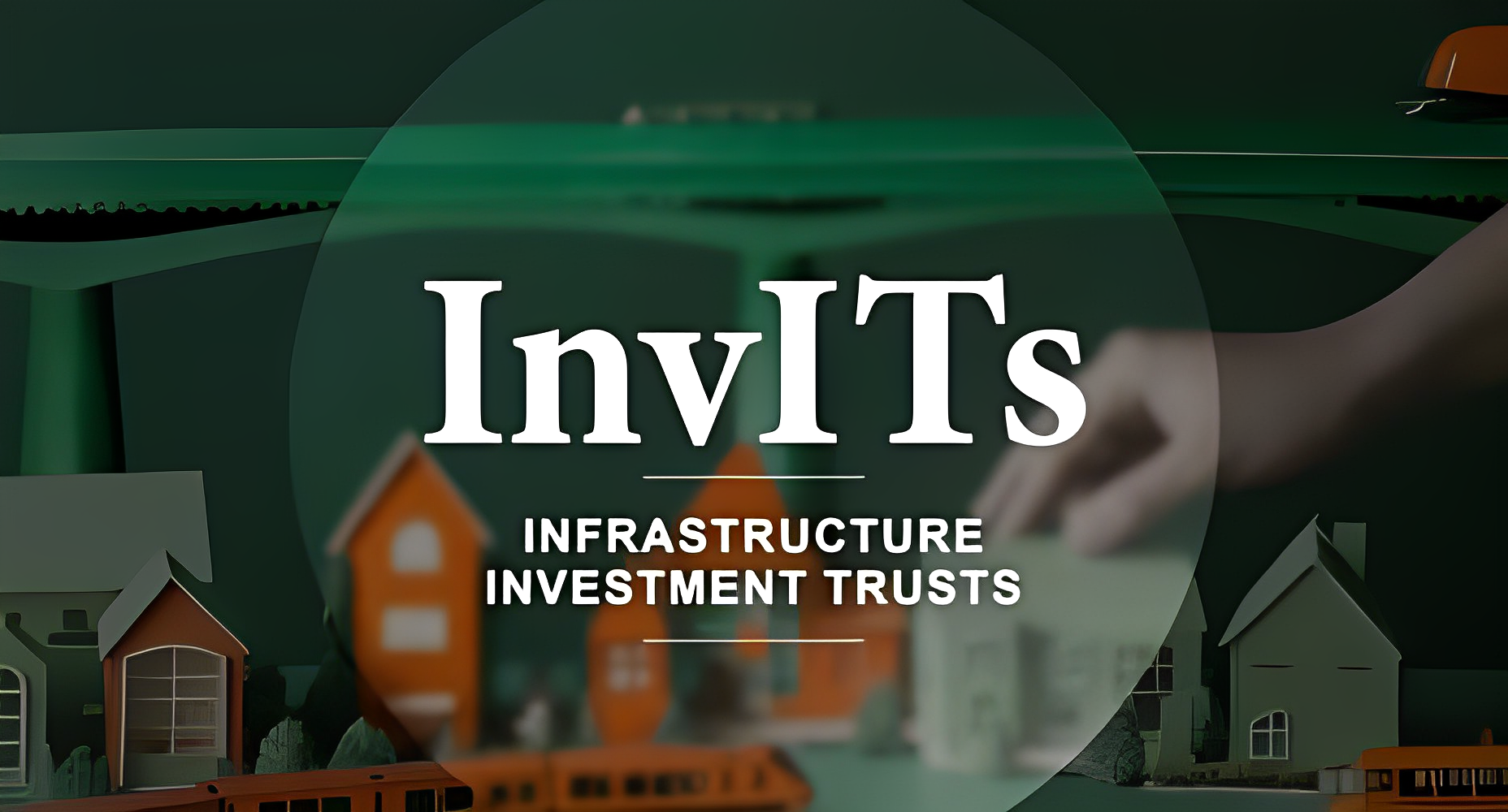Introduction : Infrastructure Investment Trusts (InvIT)
Welcome to our blog where we delve into the realm of Infrastructure Investment Trusts (InvITs). As an increasingly popular investment avenue, InvITs offer a unique opportunity for individuals and institutions to participate in the infrastructure sector. In this blog, we will explore the concept of InvITs, their functioning, benefits, and the potential they hold for investors and the development of infrastructure projects. Whether you are new to the concept or seeking to deepen your understanding, join us on this informative journey into the world of Infrastructure Investment Trusts.
What are InvITs?
Infrastructure Investment Trusts (InvITs) are a popular investment option that allows individuals to invest in infrastructure projects. These investment instruments typically own and operate income-generating assets such as roads, power plants, and transmission lines. By investing in InvITs, individuals can receive regular income in the form of dividends generated from these infrastructure projects. Moreover, InvITs offer a way for investors to engage in infrastructure development and earn returns from long-term, stable assets. This makes them an attractive option for those looking to diversify their investment portfolio and benefit from the growth of infrastructure in the country.
The Benefits of Infrastructure Investment Trusts (InvIT)
Infrastructure Investment Trusts (InvIT) are an appealing investment option, providing investors with a consistent income stream through regular dividends. This steady source of income makes InvITs an attractive choice for those seeking stable returns. Additionally, investing in InvIT offers the benefit of diversification, allowing investors to access a wide range of infrastructure projects such as roads, airports, and power plants. This diversification helps spread the investment risk across various assets, potentially enhancing the overall stability of the investment. Moreover, the regulation of InvITs by SEBI ensures transparency and accountability, instilling a sense of security for investors. This regulatory oversight contributes to the overall trust and reliability of InvITs as an investment avenue. Furthermore, by investing in InvIT, individuals have the opportunity to participate in the growth of the infrastructure sector, which is pivotal for economic development. This involvement in the infrastructure growth also presents the potential for long-term capital appreciation, making InvITs an attractive proposition for investors looking to benefit from the development of this critical sector.
Key Features of Infrastructure Investment Trusts (InvIT)
Infrastructure Investment Trusts (InvIT) open up a compelling opportunity for investors to participate in infrastructure projects, including highways, power plants, and airports. One of the key attributes of InvITs is their ability to provide a steady income stream through dividends derived from the cash flows of the underlying assets. Notably, these trusts are mandated to distribute a minimum of 90% of their net cash flow to unit holders, establishing them as an appealing option for investors seeking regular income. Beyond dividends, investors also stand to gain from the potential capital appreciation of the infrastructure assets, which can significantly contribute to the overall returns of their investment portfolios.
Types of InvITs
InvITs come in various categories based on their investment focus and revenue generation. Yield-based InvITs are known for their revenue generation from completed projects, offering investors the opportunity to benefit from established income-generating assets. On the other hand, Project-specific InvITs focus on investing in infrastructure projects under development, providing potential for growth as these projects progress. Multi-project InvITs offer diversification by investing in operating infrastructure assets across multiple sectors, spreading the investment risk. Lastly, Single-project InvITs target investments in a single infrastructure project or asset, presenting a more specific investment opportunity for investors. Understanding the distinct categories of InvITs can help investors make informed decisions based on their investment preferences and risk tolerance.
Risks and Rewards of Infrastructure Investment Trusts (InvIT)
Infrastructure Investment Trusts (InvIT) offer investors a unique opportunity to participate in infrastructure projects like roads, power plants, and renewable energy assets, presenting the potential for consistent returns over the long term. However, it’s important to consider the risks involved, including sensitivity to interest rate movements, which can impact the value of trust units. Additionally, regulatory and political risks should be taken into account, as changes in government policies or regulations may affect the performance and profitability of the underlying infrastructure assets. On the upside, InvITs generally distribute a significant portion of their income to investors through dividends, providing a steady income stream and potential tax benefits. Understanding these dynamics can help investors make informed decisions when considering investment options in the infrastructure sector.
Regulations and Guidelines for Infrastructure Investment Trusts (InvIT)
Infrastructure Investment Trusts (InvIT) are subject to stringent regulations by the Securities and Exchange Board of India (SEBI), ensuring transparency and investor protection. SEBI’s guidelines include minimum investment thresholds, restricting participation to qualified institutional investors and high-net-worth individuals. These regulations also specify the allocation of at least 80% of the trust’s assets to infrastructure projects, offering investors clarity regarding the underlying assets. Moreover, SEBI’s stringent disclosure requirements for InvITs prioritize investor access to comprehensive information, empowering informed investment decision-making.
How to Invest in Infrastructure Investment Trusts (InvIT)
Infrastructure Investment Trusts (InvIT) present a unique investment avenue focused on infrastructure projects like roads, bridges, and power plants. Investors can access these opportunities through initial public offerings (IPOs) or secondary market transactions, offering flexibility in investment entry points. A key advantage of investing in InvITs is the potential for steady income distribution in the form of dividends from the cash flows of infrastructure assets. However, prior to investment, conducting comprehensive due diligence on the quality and performance of the underlying assets, as well as assessing the expertise of the management team, is imperative for informed decision-making.
Comparing Infrastructure Investment Trusts (InvIT) with Other Investment Options
Infrastructure Investment Trusts (InvIT) present investors with a unique opportunity to participate in income-generating infrastructure assets such as roads, power plants, and airports. Unlike direct investment in infrastructure projects, InvITs offer the advantage of liquidity as they are listed on stock exchanges and trade like stocks. While investing in real estate or gold may provide diversification benefits, InvITs offer a more direct exposure to the infrastructure sector without the complexities of property management. Additionally, compared to traditional fixed deposits or bonds, InvITs have the potential to provide higher returns through a combination of regular income distribution and capital appreciation, making them an attractive option for investors seeking opportunities for growth.
Structure of InvITs in India
Infrastructure Investment Trusts (InvITs) are established as trusts under the Indian Trusts Act, 1882, and are overseen by the Securities and Exchange Board of India (SEBI). They are obligated to have a minimum of four investors for private placement and a minimum of 200 investors for a public issue. The typical structure of InvITs in India includes sponsors, investment manager, project manager, trustee, and an independent valuer. Furthermore, these trusts are required to distribute at least 90% of their net cash flow to the investors, ensuring a significant portion of income is passed on to the investors. This structure and regulation provide transparency and investor protection, making InvITs an attractive investment option in the infrastructure sector.
Frequently Asked Questions
How are Infrastructure Investment Trusts (InvITs) regulated and taxed?
Infrastructure Investment Trusts (InvITs) are subject to a pass-through tax regime, with regulations mandating the distribution of a certain percentage of income to unit holders. This ensures regular income flows for investors and aligns the interests of the trust with those of the unit holders. Furthermore, InvITs are regulated by the Securities and Exchange Board of India (SEBI), which has laid down detailed guidelines for their formation, operation, and disclosure requirements. Additionally, InvITs enjoy tax benefits such as exemption from dividend distribution tax, making them an appealing investment option for both domestic and foreign investors. This favorable tax treatment, along with the regular income distributions, adds to the attractiveness of InvITs as an investment avenue in the infrastructure sector.
What are the benefits of investing in Infrastructure Investment Trusts (InvITs)?
Infrastructure Investment Trusts (InvITs) offer stable returns to investors, often through regular dividend payments, making them an attractive option for those seeking a steady income stream. Additionally, investing in InvITs provides an opportunity to participate in large-scale infrastructure projects without directly owning the assets, allowing investors to access the infrastructure sector’s potential without the complexities of direct project management. The regulated nature of InvITs as investment vehicles offers transparency and governance, providing confidence to investors. By investing in InvITs, individuals can contribute to the development and maintenance of critical infrastructure assets in the country, aligning their investments with the nation’s growth and progress.
What is an Infrastructure Investment Trust (InvIT)?
An Infrastructure Investment Trust (InvIT) is a unique investment vehicle that opens the door for individuals to engage in infrastructure projects, offering an alternative to traditional investment options. These trusts, akin to mutual funds, are tailored to deliver returns to investors through a combination of dividends and capital appreciation. By owning and managing income-generating infrastructure assets such as roads, power transmission lines, and renewable energy projects, InvITs provide a means for individuals to align their investments with the growth of the infrastructure sector while reaping the rewards of stable cash flows and potential tax advantages.
Conclusion
In conclusion, Infrastructure Investment Trusts (InvITs) offer a range of benefits, such as steady income distribution through dividends and potential tax advantages. However, it is crucial for investors to be aware of the risks associated with InvITs, including market and regulatory uncertainties. Understanding the key features, types, regulations, and structure of InvITs is essential for making well-informed investment decisions. Moreover, comparing InvITs with other investment options highlights their unique advantages, such as direct exposure to the infrastructure sector and potential for higher returns. With the stringent regulations and guidelines set by SEBI, InvITs provide transparency and investor protection, making them an attractive avenue for investment in India’s infrastructure projects. By carefully considering these factors, investors can capitalize on the opportunities presented by Infrastructure Investment Trusts.




